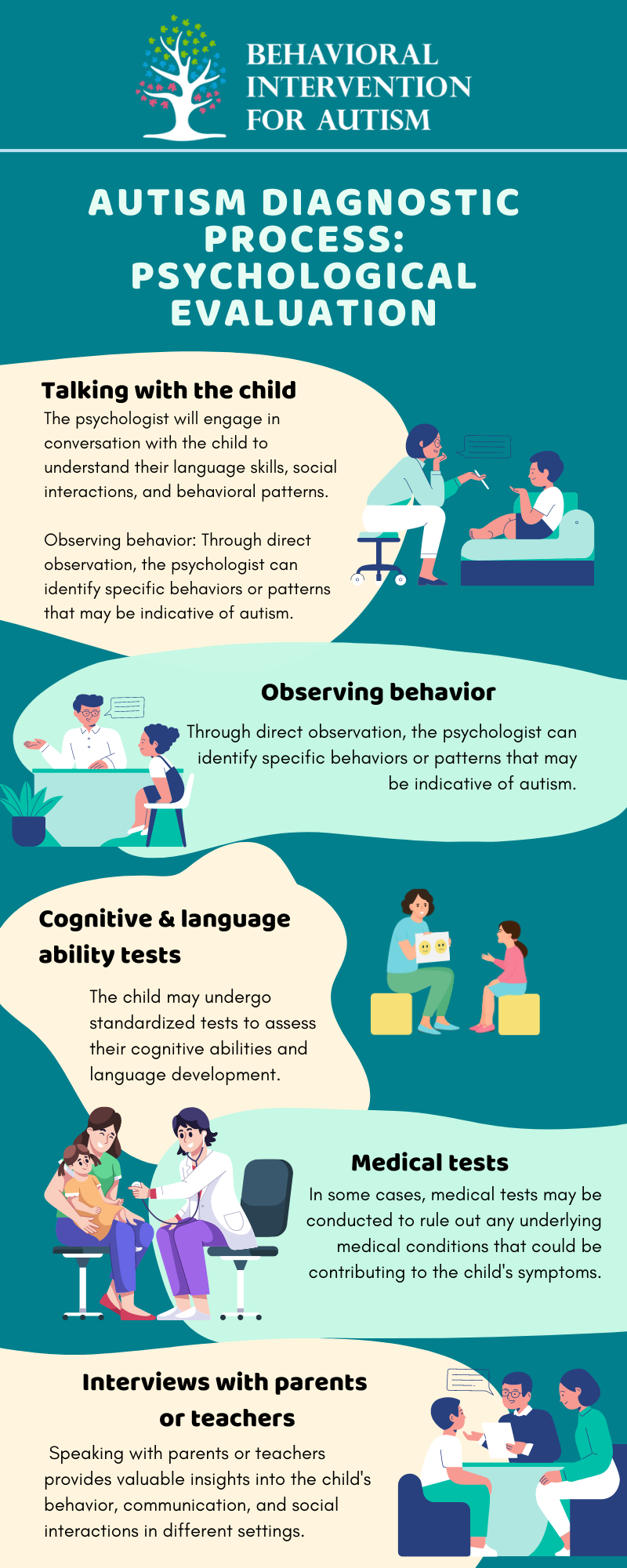How to support with strategies from an trusted Aba Therapist
How to support with strategies from an trusted Aba Therapist
Blog Article
Trick Symptoms And Signs to Recognize in Individuals With Behavioral Autism
When you encounter a person with behavior autism, recognizing key indications and symptoms is essential. You might discover obstacles in social interactions and interaction, as well as a solid requirement for routines. Furthermore, sensory level of sensitivities can lead to frustrating experiences. Understanding these qualities can improve your assistance and interventions, yet there's more to reveal regarding exactly how these behaviors manifest in daily circumstances. Allow's discover what these signs truly look like.
Challenges in Social Communications
When you engage with someone on the autism range, you might notice they struggle with social cues and interaction. These difficulties can make social communications feel frustrating for them.
When they do involve, they could speak regarding their passions in excellent information without noticing if you're interested. Comprehending these difficulties can assist you come close to communications with empathy and patience, promoting a much more comfy setting for both of you.
Trouble With Verbal and Non-Verbal Communication

Non-verbal communication can be much more difficult. You might see an absence of eye get in touch with or minimal use motions, which can make communications feel unpleasant. Faces may not constantly align with the discussion, resulting in complication regarding their feelings. Acknowledging these signs is vital, as it assists you better assistance and involve with individuals on the autism spectrum. By understanding their interaction difficulties, you can cultivate more meaningful links and provide a much more supportive setting.
Repeated Actions and Routines
Interaction obstacles frequently come with various other signs of autism, such as recurring behaviors and a strong choice for routines. You may discover that people with autism frequently involve in particular, repetitive actions, like hand-flapping, rocking, or duplicating expressions. These habits can offer convenience and a feeling of control in an often frustrating world.
When they follow an organized routine,Routines are equally important; numerous people prosper. You may discover that adjustments to these routines can lead to considerable distress. For example, if they have a day-to-day ritual of consuming morning meal at a certain time or following a particular path to institution, any interruption can cause anxiety.
Recognizing these patterns helps you understand their behavior and give assistance. By fitting their need for routine and allowing recurring actions, you can create a more comfortable environment that eases their challenges.
Sensory Level Of Sensitivities

Typical Sensory Triggers
Sensory level of sensitivities can considerably impact life for people with autism, as particular stimuli commonly activate overwhelming reactions. Usual sensory triggers consist of loud sounds, brilliant lights, and strong scents. You could see that abrupt audios, like alarms or alarms, create anxiousness or distress. Similarly, fluorescent lights in shops can feel uncomfortable and severe. Structures can additionally play a significant role; harsh materials or certain food textures might be intolerable for you. In addition, crowded areas can overwhelm your detects, making it difficult to focus or relax. Understanding these triggers can assist you handle your environment much better. By being mindful of what influences you, you can take actions to reduce pain and boost your day-to-day experiences.
Behavior Reactions Explained
Comprehending your behavior responses to sensory level of sensitivities is necessary, as they often reveal just how you interact with the globe. You may discover that particular sounds, lights, or textures overwhelm you, bring about stress and anxiety or discomfort. When faced with these stimulations, you could withdraw, cover your ears, or also respond strongly. These actions aren't just quirks; they're your way of managing overstimulation. You may also discover on your own looking for certain sensory experiences, like deep pressure or quiet settings, to aid ground on your own. Identifying these patterns helps you comprehend check out here your requirements far better and can direct just how you interact them to others. By acknowledging your sensory level of sensitivities, you can function towards developing an environment that really feels much more workable and comfortable for you.
Coping Approaches Summary
Acknowledging your sensory level of sensitivities is simply the very first step; now it's time to discover coping techniques that can aid you take care of those experiences effectively. Start by creating a sensory toolkit customized to your needs. Establishing a structured regimen can likewise give predictability, minimizing stress and anxiety around sensory overload.
Limited Rate Of Interests and Emphasis
While numerous individuals create a large variety of rate of interests, those with autism commonly show limited rate of interests and an intense concentrate on particular topics. You could observe that somebody with autism can spend hours diving right into their preferred subject, whether it's a specific kind of train, a specific film, or a scientific idea. This extreme focus isn't simply a leisure activity; it can come to be a central component of their identification and social interactions.
You may locate that conversations rotate around these rate of interests, and they may battle to engage in more comprehensive topics. For them, these concentrated interests supply comfort and a sense of mastery. While it's crucial to encourage expedition of new subjects, respecting their interests is just as important. By comprehending and acknowledging these limited interests, you can cultivate a helpful setting where they feel valued and comprehended, enabling even more significant links and interactions.
Psychological Regulation Problems
Individuals with autism commonly encounter challenges in emotional policy, which can be influenced by their intense focus on specific interests. You might observe that when a person is deeply participated in a recommended task, they can experience strong emotions, whether enjoyment or irritation. This intensity in some cases makes it hard for them to shift equipments or manage their sensations when points do not go as prepared.

Variability in Developing Landmarks
When it comes to developmental turning points, you'll discover that people with autism typically reveal a large range of irregularity. Some might hit milestones on schedule, while others may hang back or progress at a different rate. For example, you might see a child master language skills however battle with social interactions. This inconsistency can be complicated, as typical standards do not constantly use.
It's necessary to acknowledge that each individual's journey is unique. Some may establish intricate abilities early, just to deal with difficulties later on. Others might take longer to achieve basic landmarks yet after that prosper in certain locations. Observing these patterns can help you comprehend their staminas and needs better.
Frequently Asked Questions
How Is Autism Diagnosed in Children and Grownups?
To detect autism in children and adults, experts review actions, interaction abilities, and social communications. If a specific satisfies the requirements additional info for autism spectrum problem., they typically use standard tests, interviews, and observations to establish.
Exist Different Kinds Of Autism Spectrum Disorders?
Yes, there are various types of autism range disorders, consisting of Asperger's syndrome and prevalent developing disorder-not otherwise specified. Each kind varies in severity and features, so understanding these differences can assist you far better support people with autism.
What Therapies Are Efficient for Individuals With Autism?
When thinking about effective therapies for people with autism, you'll find options like Applied Habits Evaluation, speech therapy, and occupational treatment. Each approach can aid enhance interaction, social skills, and everyday operating tailored to private requirements.
Can Individuals With Autism Lead Independent Lives?
Yes, individuals with autism can lead independent lives. With the appropriate support, skills training, and resources, you can assist them develop self-sufficiency, handle day-to-day jobs, redirected here and flourish in different environments, promoting their freedom.
Just How Can Families Support Loved Ones With Autism?
You can support your loved ones with autism by producing an organized setting, urging their passions, practicing patience, fostering communication, and promoting social skills. Commemorate their accomplishments, despite exactly how little, and construct an encouraging community.
Although lots of people on the autism range can recognize and use language, they usually face significant challenges with both verbal and non-verbal interaction. Recognizing these indicators is essential, as it aids you far better assistance and involve with people on the autism range. You might see that individuals with autism often engage in details, repetitive actions, like hand-flapping, rocking, or repeating expressions.Sensory level of sensitivities can considerably influence daily life for individuals with autism, as certain stimulations frequently set off overwhelming responses.When it comes to developing milestones, you'll observe that people with autism typically show a broad array of irregularity.
Report this page